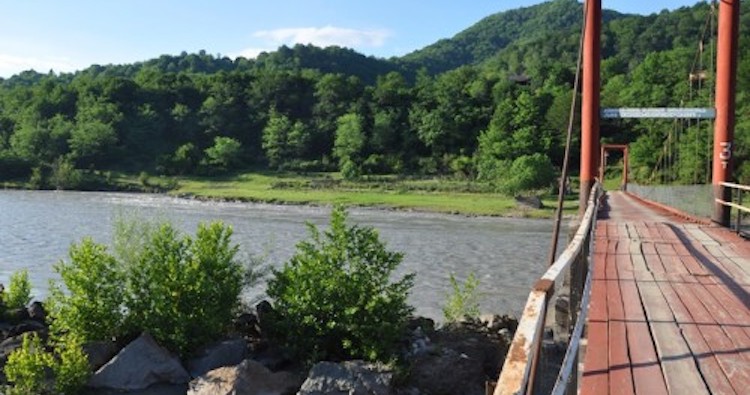Construction of main facilities of Namakhvani HPP suspended, auxiliary infrastructure will be built

The Namakhvani HPP Project entails the construction of a hydroelectric power plant on the Rioni river in Georgia’s Tskaltubo and Tsageri municipalities. Photo: Green Alternative.
The construction of the main facilities of the Namakhvani HPP in western Georgia, in particular the dam and the reservoir, will be suspended until major studies are re-verified and validated, while construction of the auxiliary infrastructure will continue, announces Georgian Economy Minister Natia Turnava.
The Namakhvani HPP Project entails the construction of a hydroelectric power plant on the Rioni river in Georgia’s Tskaltubo and Tsageri municipalities.
The project includes the construction of two plants – the Lower Namakhvani HPP (333 MW) and the Upper Namakhvani HPP (100 MW) – with a total capacity of 433 MW and average annual generation of 1.514 GWh.
The project is being carried out by the Turkish company Enka.
Turnava said that an agreement had also been reached with the HPP investor that a 5 million GEL development fund will be set up in Rioni gorge that will finance all necessary projects for the gorge’s population, a Georgian director will be appointed and an independent council will be set up to oversee the project.
Turnava said that the Namakhvani HPP will provide Georgia with 12% of its electric energy needs once completed.
This is a very important large hydropower plant with an installed capacity of 430 MW; It will bring in $800 million in foreign direct investments,” said Turnava,
Locals protest the construction of the HPP in the seismic active region, claiming that the construction was launched without sufficient research and thorough consideration of risks, including immediate security risks due to the active seismic processes.
Further concerns include potentially devastating environmental impact for the regions affected, their unique biodiversity and cultural heritage, as well as microclimates that are crucial for producing Georgian wines.
 Tweet
Tweet  Share
Share